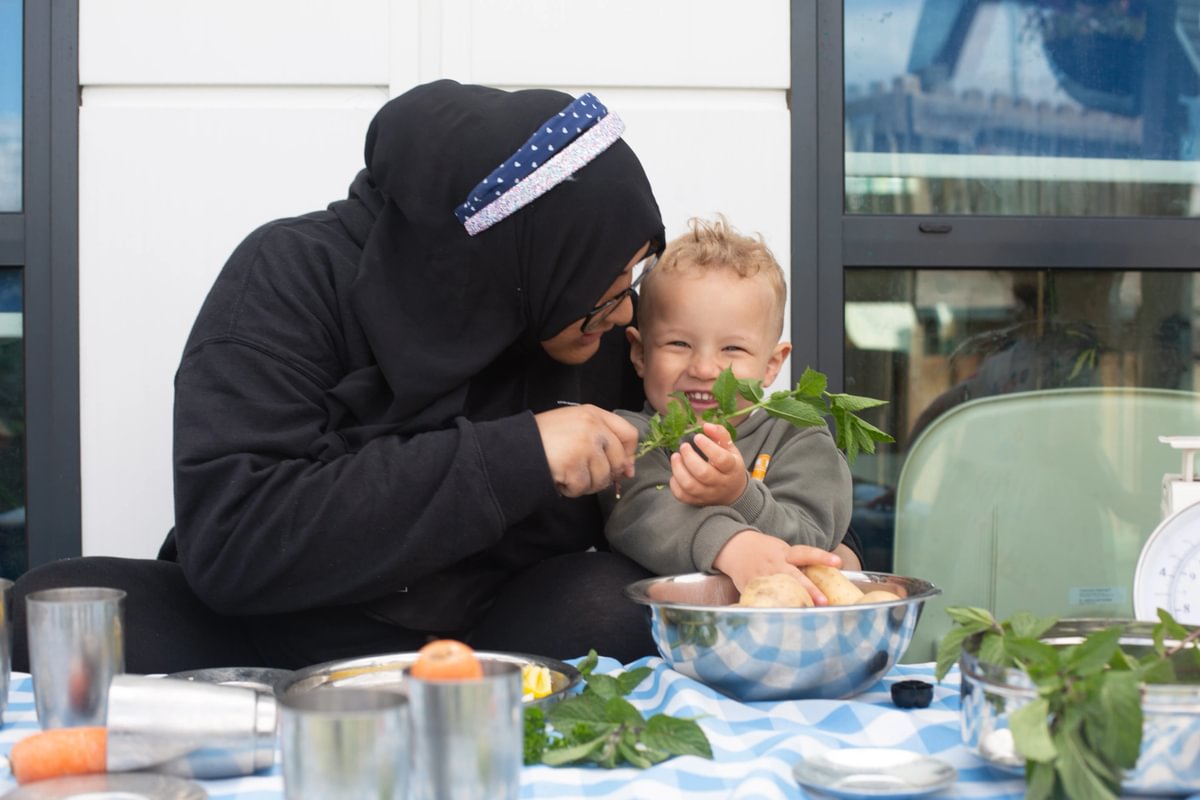
The Power of Intergenerational Nurseries
Talking Early Years: June O’Sullivan and Sue Egersdorff The world is changing fast. Technology is accelerating how we live, work and even care, but in that rush, you…
March 8th 2021
To mark International Women’s Day (8 March), I ask, “Have Feminists Failed Childcare?“
The COVID-19 crisis identified the importance of childcare for both children and their families. Suddenly, the contribution of the ‘Cinderella service’ emerged from the cellars. No longer were we just a dowdy little servant, we were the sparkly princess – or rather, front-line superheroes.
Parents started to understand the purpose of what we do all day long and the need to provide nursery places for essential workers and vulnerable children was abundantly clear. Our place in modern infrastructure was confirmed. Families need access to affordable childcare to function effectively.
It has taken over 30 years to bring this issue into the public notice. In November 1989, the United Nations Convention on the Rights of the Child was adopted following 10 years of discussion and debate. It was designed to make national decisions that are in the best interests of all our children. One of the first decisions taken by many governments was to provide access to affordable high-quality services. This was then shaped by a policy with a dual purpose, one to provide childcare to keep people at work and therefore drive economic benefits but also deliver childcare to those children experiencing disadvantage and deprivation to drive social, emotional and cognitive benefit. However, as the pandemic took hold, what became clearer to the public was the challenges of those dual childcare and early childhood education (ECE) policies through the wealth versus health narrative.
The sector, encouraged by the Government, has been shaped by the market and the result is a mish mash of private, voluntary and statutory services which lacks coherence and is fragmented. This means that while many people can run ECE services to meet the need for childcare so parents can work, the needs of the children from poorer families are often missed because the market does not always solve the complexities of poverty and investment from the Government is insufficient. Underfunding before Covid was exceeding £800m annually, and its unlikely to have reduced.
So, why is our sector open but clearly forgotten? Is it because we are a mostly female workforce which provides education for small children, or is it because we still haven’t fully worked out if childcare is personal or public? Whatever your opinion, it is highly political.
Whilst the howls from schools for additional money, IT support, PPE and lateral test kits were all eagerly met, the Early Years sector was mostly ignored. We had to fight our corner to get any support – not just for the staff but to make people understand that early childhood education promotes social justice and empowerment for children.
The issues raised last summer about hungry children, developmental delays, increased obesity, lack of resources, widening educational gaps (especially among the poor) were stomach churning. We even experienced this at our own nurseries. But where was the support from our feminist sisters – the same women who challenged sexism in the creative industries?
The voice of the Early Years sector (which is 97% female) is not loud enough or influential enough to engage the media for long. Care is neither influential nor sexy. Yet, ironically the importance of this very issue was really highlighted by the pandemic.
We all know that the public has a short memory and that some of the learning from lockdown will soon evaporate which is why the realisation that childcare is essential needs to be remembered.
There is a policy window open but it might not stay open very long. We therefore must act NOW and ask the most pertinent questions. These include:
Is it OK for childcare to remain a Cinderella service when it is essential to delivering a feminist right to work for many women?
Is it OK that childcare and ECE, a key part of our modern infrastructure, remains so underfunded?
Is it OK that childcare is delivered by mostly female staff who live in poverty because many have salaries which are 60% of the median income, and where 44% of those working top up their salaries with benefits?
Is it OK that our poorest families cannot access childcare because it’s delivered through the market model to places where families cannot afford it?
Is it OK that in 2021, working mothers are being disproportionately impacted by the pandemic and more likely to have lost their jobs (the result of structural inequality that has long existed)?
Is it OK that we allow an essential system to operate which will not fulfil its purpose of providing our poorest and most vulnerable children to access a well-funded, high quality and accessible ECE system?
Women have been putting childcare on the feminist agenda since the 1970s. But why is it no longer central to modern feminist policy aims? Feminists may argue that it is not a feminist issue, but a public policy issue. However, access to quality, affordable childcare is surely a key strand to giving women the uncomplicated right to work and, in doing so, ensure that the child’s right to have the highest quality ECE experience is woven into the policy demands.
Have feminists given up on childcare? Have they failed to shape the rights of all children into a well-funded, well respected and publicly supported service? Childcare and the rights of many small children, especially those who as disadvantaged are being failed by our unequal system of childcare. Right now, we MUST rekindle the loud public feminist engagement in the issue. It has never been more important.

Talking Early Years: June O’Sullivan and Sue Egersdorff The world is changing fast. Technology is accelerating how we live, work and even care, but in that rush, you…

On the 7th April, we held the London OBC and here is a summary for those of you who could not attend. We are trying something new,…

The London OBC is coming on the 8th April 2025 We will be hosting it at Bain where we can take up to 100 people in person. This time…